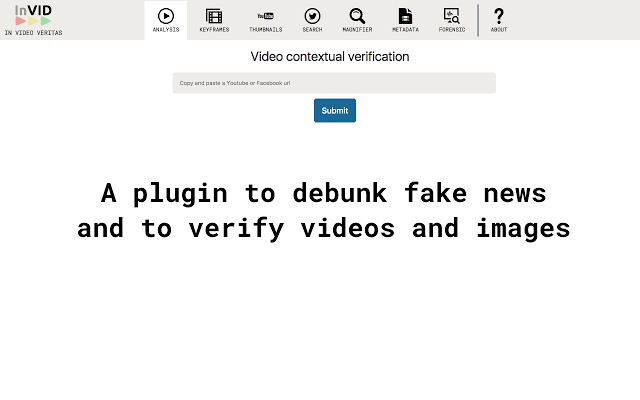InVID’s take, however, is different. The open-beta plugin is aimed at journalists and makes it easier to fact-check and debunk videos. It lets users cross-check metadata and image frames across various platforms, highlighting image manipulation and inconsistencies. “The provided tools allow you to quickly get contextual information on Facebook and Youtube videos, to perform reverse image search on Google, Baidu or Yandex search engines, to fragment videos from various platforms (Facebook, Instagram, Youtube, Twitter, Daily Motion) into keyframes, to enhance and explore keyframes and images through a magnifying lens, to query Twitter more efficiently through time intervals and many other filters, to read video and image metadata, and to apply forensic filters on still images,” reads the official description.
Its reverse image search features should make it far easier for journalists to track down the original source of the image. This makes it much easier to verify the context and authenticity, which should stop the spread of fake news.
Just the Beginning
For now, the tool is limited to Chrome, but with funding from the EU’s Horizon 2020, it’s likely we’ll see a release on other browsers soon. However, this is just one part of InVID’s suite. A prototype ‘Multimodal Analytics Dashboard’ looks even more promising. It lets you track evolving stories across multiple social media platforms, tying in regions, videos, and more. It combines with InVID’s other tools, which let users source logos on videos and better manage copyright. The latest plugin combines some of those features and omits others. However, it’s simplicity makes it a must-have for journalists, despite a few minor bugs. You can download the beta plugin from the Chome web store.




